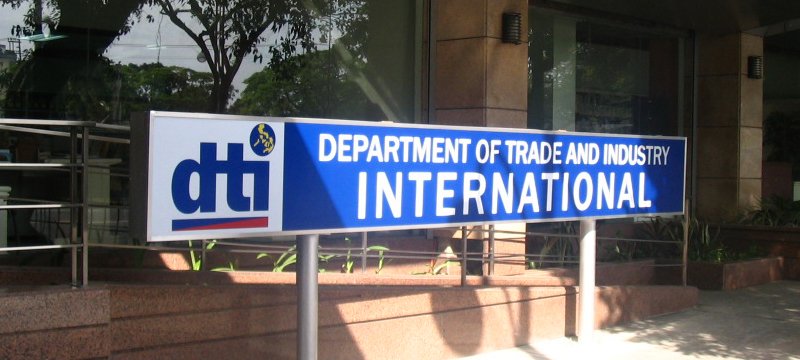Fine tuning RCEP could take till 2019 : Ramon Lopez
BusinessWorld | 26 April 2017
Fine tuning RCEP could take till 2019 : Ramon Lopez
The Department of Trade and Industry (DTI) will start studying the possibility of an FTA with the world’s largest economy ahead of the Association of Southeast Asian Nations (ASEAN) meetings in November, which US President Donald J. Trump is “likely” to attend.
“[Talks] are still on informal basis, we have the GSP (Generalized System of Preferences) with the US and that still stands. If ever there will be some initiatives to work on an FTA, then, we’ll be open to pursue that... but right now, at least with the help of the US, they’re granting GSP privileges to Philippine products. We’re happy with that,” Mr. Lopez told reporters on the sidelines of the Management Association of the Philippines (MAP) general membership meeting in Makati City.
“Normally before going to an FTA, there are feasibility studies, one-on-one, assessments of benefits and all that, so we’ll have to go through that process, but there is none yet...” the Trade secretary noted, adding that the study will start by the “first half.”
The GSP program eliminates duties on about 5,000 products imported from certain developing and least developed countries and territories, which include the Philippines. The program however, excludes textiles, apparel, and footwear.
A possible FTA could be discussed if the US raises it during Mr. Trump’s Manila visit, although the country is “comfortable” with the preferential treatment for selected items under the US GSP.
“Frankly, we’re comfortable, we’re happy with the GSP privileges, it’s benefiting us. They’re one of the biggest economies, it’s really for them to help developing countries like us,” Mr. Lopez said. “It could be a one way support for now, granting that privilege... we need it more than they need it.”
The government earlier said it is seeking to arrive at a bilateral free trade agreement with the United States after Washington signaled that it will not pursue the multi-country Trans-Pacific Partnership (TPP).
DTI Assistant Secretary Rafaelita M. Aldaba said at a news conference in March that the potential trade focus could be garments, particularly textiles, and travel goods as well as potential to export electronics to the US, although the DTI is still searching for other possible areas of trade and will conduct exploratory studies on before an approach is made to the US.
“A new FTA must have the elements of the TPP. So we’re not looking at an FTA that would only cover goods... It has to be a ‘new age’ FTA that would include goods, services and international standards,” Ms. Aldaba said then.
Mr. Lopez said yesterday that the Philippines is “okay” with the GSP in the absence of the Obama-led TPP.
Aside from the US, the country is also open to forging FTAs with other countries, although it will carefully study each proposals first.
“On bilateral free trade, on the ASEAN, we’re comfortable with the Asean Economic Community ; we want to do the United Kingdom (UK), but UK indicated they want it to be regional ; so, we could explore a deal with Russia, the new markets, possibly ... but coming up with FTA, that’s not in the near horizon,” Mr. Lopez said.
“Chile has been inviting us (to explore a trade deal), but on our part, we want to study that, there are those more aggressive countries in forging FTAs, but on our part, we want to do the feasibility studies first but we’re always open to any FTA,” he added.
Meanwhile, the DTI Secretary said the Regional Comprehensive Economic Partnership (RCEP) is expected to be brought up in the ASEAN meetings later this week although there will be “no agreement” yet as member countries still need to fine-tune details of the pact.
“There’s no agreement yet on the RCEP, but we expect that to be raised of course na parang to push through with the fast approval, to finalize the agreements and I’m sure we’ll be hearing direction from the leaders ... hopefully to finish it this year, we had that working group meeting, senior economic officials in Bohol so they’re now working on the details on how we can fine-tune parts of the agreement,” Mr. Lopez said.
“That will be work in progress by 2019, it won’t be an agreement yet. We have a year ...hopefully at the ASEAN Ministers meeting sometime in September we’ll get a clearer picture on the parameters,” he added, noting that the “text” part of the pact could take up to next year, but on the “numbers,” members of the 16-nation Asia trade pact could agree this year.
The RCEP was conceived as an expansion of Southeast Asian trade ties with China, India, Australia and Japan. It will cover almost half the world’s population and 30% of the global economy.
RCEP member nations include China, India, South Korea, Japan and Australia, alongside Southeast Asian countries.






